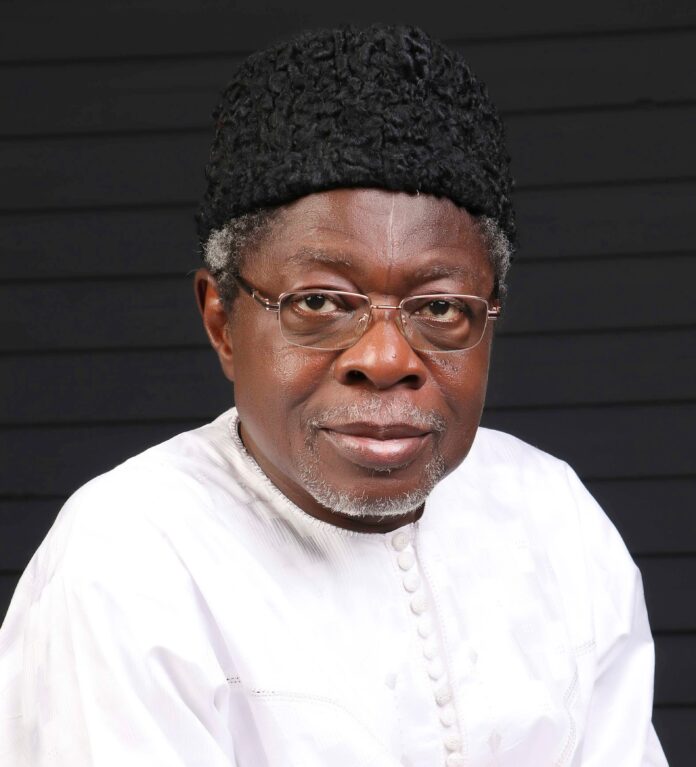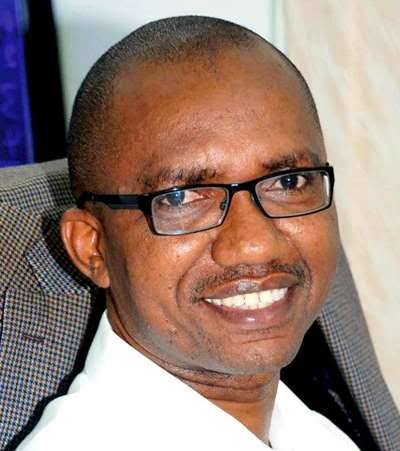Change must begin with the leader, by Hassan Gimba
The Arbiter
This writing was first published on 6 July 2020. With changes of leadership soon at the federal and state levels, I see it as relevant. The first part in particular. However, do we forget the lessons in the second part?
The world is changed by your example not by your opinion – Paulo Coelho, Brazilian Lyricist and author of The Alchemist.
Allah (SWT) said in the Qur’an that He does not change the condition of a people until they change what is in their hearts. It is a verse widely quoted out of context by people wanting to give their idols in power excuses. There was never a time in any history when people just woke up and all of them at the same time said to themselves: “We must change”. Even revolutions and mass uprisings have guides. Someone had to mobilise them, sensitise them, and lead the way. And that person is called a leader. Therefore, those who are fond of quoting this verse as an excuse to shield their principals are either loose-brained or plain mischievous. Most likely, they won’t refer to the verse if the icon does not appeal to their sentiments.
Because God raises the living out of the dead and brings forth light out of the dark, He raises from among a people their type who leads them from deprivation to well-being. Out of the palace of the Pharaoh, He raised Moses (AS). Out of the family and society of idolaters, He brought forth Abraham (AS), and out of the heathendom of Arabia, He revealed Muhammad (SAW).
Chaka the Zulu founded the Zulu Empire and for twelve years before his assassination on September 22, 1828, he molded his people into a dominating fighting force never seen before in southern Africa. Mao Zedong, known as Chairman Mao, was the founding father of The People’s Republic of China and laid the foundation of what China now is. You can go on and count leaders who changed their people and their countries’ fortunes by leading by example. Cuba’s Fidel Castro was one; we also had Muammar Gaddafi from Libya, Dr Martin Luther King who raised the consciousness of Blacks, Dr Muhammad Mahathir of Malaysia and Mahatma Gandhi of India.
These leaders raised the consciousness level of their people and changed them to better human beings, by being what they wanted their people to be. They did not look at their people in the face condescendingly and patronisingly, point a finger at them, and sing “change” while they indulged in the vices of yore. Mao viewed such leaders as “swollen in head, weak in legs, sharp in tongue but empty in belly.”
In Nigeria, they promised us “change” and we fought to bring in its champions. Some lost their capital, others their health, while some paid the supreme price, but we all heaved a sigh of relief and proclaimed, “It has come!” We wanted change, and we thought fairness and justice would take the place of selfishness and impunity; that transparency and accountability would replace corruption but, above all, that our lives and property would be secure.
We have seen how our leaders of old discarded our homemade cars, foods, clothes, hospitals and schools and embraced those of foreigners for themselves and their families. We were witnesses to our leaders collecting stupendous salaries and allowances, while our most vulnerable slept on empty stomachs. We thought the change would bring leaders who would put everything for the wealth of the land to cascade to the least of us.
Sheikh Usman Dan Fodio had two lamps, one bought by the state and the other from his salary. After finishing state work with a state lamp in the night, he blew it out and lit the personal one for his private work.
So, what has changed? Anyone who tells me I must first change before my nation changes is not fair to me. He is just mocking me. People are just a crowd. They need a leader to become a nation. I just need to be led out of the woods and that was why I voted. A crowd cannot change anything, except to cause chaos and anarchy, but a leader can.
We can attest to this even from simple clothing. Many of us wear our watches on the right because we grew up watching General Yakubu Gowon do so. Before the coming of Alhaji Shehu Shagari as president, many typical northerner’s gowns (Babbar Riga) had a “just there” embroidery, but Shagari came with the Shagari style – full embroidery covering the chest down to the stomach. Now, you may be called a clown if you wore a gown with small embroidery. Nigerian men, especially those from the north, used four yards for their jumpers and trousers. Then General Sani Abacha, like a bolt from the sky, came with his tazarce and redefined how we dress. Wear a four-yard jumper now and risk being viewed as “half-naked”. President Buhari too has brought back a hitherto dead mode of dressing – wearing a collar-neck shirt under a caftan.
At the state level, a state I know very well is Yobe. When Bukar Abba Ibrahim was the governor, his followers took to wearing his type of red dara cap. This mimicking of leaders is seen in the way many admirers of the current governor, Mai Mala Buni, are adopting his idiosyncrasies and a certain cap he has popularized. I started wearing my watch on the right in the early 70s because I saw General Yakubu Gowon, then Head of State, doing so.
Did we not see how General Obasanjo’s Operation Feed the Nation turned civil servants into farmers? Our parents were, as civil servants, proud and happy to engage in farming. General Muhammadu Buhari’s War Against Indiscipline, though not out of inspiration (perhaps why it did not outlive the regime) as out-of-state coercion, made people toe the path of discipline and decorum. The recent change (after Governor Buni became Caretaker Chairman) in APC’s direction and possibly fortune is enough testimony that it takes a leader to change the course of events.
Honourable Minister, The School Kids Are Hungry
One grows weary sometimes of continuing to write when nothing seems to change, and there is the temptation to just give it up. But there are many things one cannot just ignore.
I want to write about Buratai relocating to Katsina until “banditry is crushed”. Yes, the same Buratai who went to Sambisa over two months ago with the promise to never return until he has finally strangled that dying horse so that we can rest from its last kicks.
I want to write about the hungry kids because they don’t get meals any more. I also want to write about the school children’s “feeder” wanting to build 10,000 houses for Borno IDPs. I want to write and bring to her notice that if beneficiaries of N72 billion worth of palliatives refuse to be identified because they do not want to be regarded as poor, what makes her think the proud Borno people will accept houses as alms? Please, she should use the billions instead to continue feeding the kids, for they are hungry.
I want to write about N-Power. 500,000 beneficiaries who are still crying over their unpaid allowances are being sent out of jobs they have got experience in for 400,000 other fresh-eyed hopefuls. They said N-Power is an acronym for Need for Power. Well, they have been thrown into Need for Job now. I want to write about Nigeria’s alarming unemployment rate. When the N-Power portal opened, 100 applications were registered per second and by 7.38 pm that day, 1,001,045 applicants had registered.
I want to write about the prophecy of doom by the Presidential Task Force ( PTF) three weeks ago – that by this time next week, Nigerians will start dying in 100s because Nigeria will enter the “second wave of COVID-19”. I want to write and ask, then why are you asking our children to return to school?
I also want to write about their claim now that Nigerians did not die because the virus-infected only citizens that are between 20 and 30 years old and “being an active group”, the virus died in them – just like that!
I want to write about this 20 – 30-year-old group “attractive” to the virus. I want to write and ask, why didn’t they infect anyone? Are they living on an island in this country? Don’t some of them have siblings, spouses, children, parents, and grandparents? Don’t they mix with other “age groups” in the country?
I want to write and ask, despite these alarms, true or false, what are our governments doing to improve our health care system, especially as we are still not allowed to run to Europe?
I want to write and ask…
Hassan Gimba is the Publisher and Editor-in-Chief of Neptune Prime.
Follow the Neptune Prime channel on WhatsApp:
Do you have breaking news, interview request, opinion, suggestion, or want your event covered? Email us at neptuneprime2233@gmail.com






How Resilience Can Help Leaders Tackle Stressful Situations?
Feb 1,2023 Happiness can be found in the darkest of times, only if one remembers to turn on the light, said M.I Edress, a fictional, yet one of the wisest men we know. Every leader that has ever faced a stressful situation would tell you that resilience is the only way to deal with these situations.
Thank you.
Comments are closed.